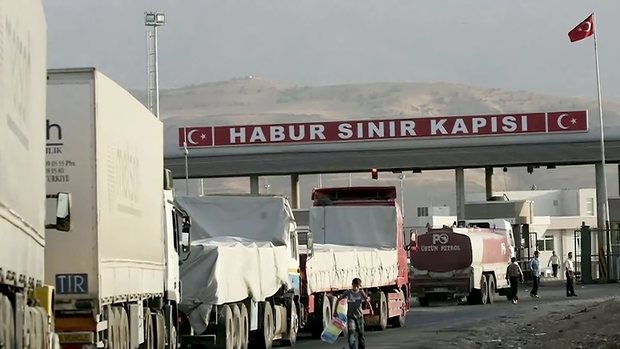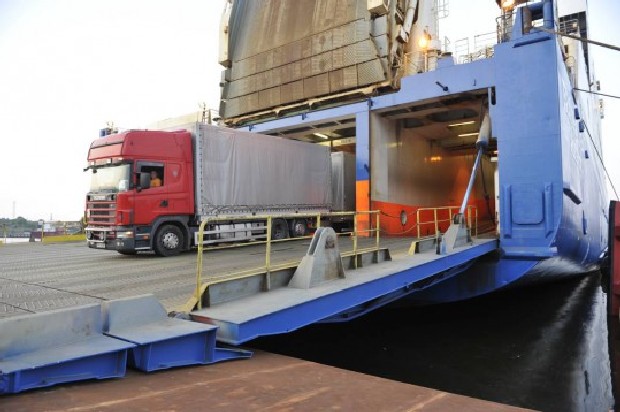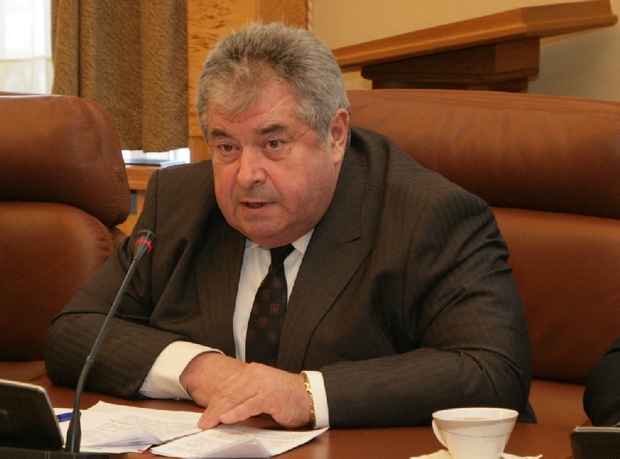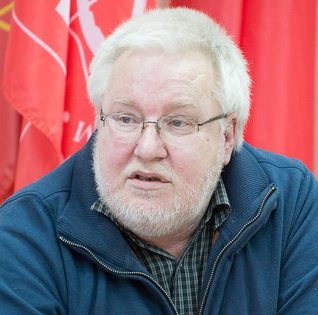‘Transit war’: Poland and Turkey closed the gates for truckers
Transport ‘blockade’ can impact on both the industries in Alabuga and the markets
Turkey and Poland haven't extended the agreement with Russia on issuing licences to the hauliers. Though the reasons are different, it has impacted on Tatarstan and Russia as a whole. If in the relations with Turkey a political will takes place, 'Polish problem' has, more likely, economic basis. According to the experts of Realnoe Vremya, Poland authorities lobby interests of their hauliers, trying to push on Russia. Nevertheless, the experts believe in the positive resolution of conflict, otherwise, not only the freight market will suffer, but also the entire economy.
Russia limits cooperation and Turkey 'digs its heels in'
Yesterday morning, it became known that truck haulage has been suspended between Russia and Poland. In the afternoon, the transportation with Turkey was ceased. In both cases, the states haven't prolonged licences for truck haulage. However, the reasons why the agreement have not been prolonged are different. According to the Assosiation of International Truck Haulage (ASMAP), Ankara hasn't agreed on the quota of permits for 2016. Mintrans of Russia is trying to solve that problem. They send repeatedly to Turkish counterparts the offers to exchange permissions.
'In December, the Ministry of Transport of Russia appealed to Turkey to exchange permits for 2016 at a reduced amount,' told Aleksandr Lindval, the representative of ASMAP in Kazan. 'Previously, we exchanged with bilateral permits 8 000 to 8 000. That is, the quota for Russia and Turkey was 8 thousand permits. Due to political events, Dvorkovich and Mintrans of Russia decided to reduce quota fourfold and offered Turkey to exchange 2 000 on 2 000. That was not good enough for Turkey. That's why they turned the proposal down. Now, a few days ago, the Transport Ministry once again appealed to the Turkish side. There is still no answer. Permissions for 2015 were extended till 31 January 2016. Now the haulage can be carried out only by a third side: Moldovans, Romanians, Bulgarians, Georgians, Ukrainians. It does not suit us, we must succeed in exchanging the permissions.

Poland has decided to 'improve' Russian legislation
All experts blame Poland for complicated relations, and they blame new leaders of the country, due to whom, according to them, all are in horror, including Europeans.
'Taking advantage of its position as a transit country and the fact that now we can't pass through Ukraine, and the only way to Europe, excluding by ferries – is Poland, they have decided to 'improve' Russian legislation, in particular, 362 Article on control and performance of international transportation,' said Lindval.
According to the Ministry of Transport and ASMAP data, in recent years various violations by foreign, including Polish, hauliers took place in cargo delivery to Russia. Especially widespread is the scheme when the goods, exported by Polish truck drivers from third countries, for example, from Germany, were presented as loaded in Poland.
'They forged documents, and if not, they payed a fine 1 500 rubles and that's it,' said Sergey Sotnikov, the Director of transport company Revers. 'In Europe for violations of documentation there are other penalties.' In Russia, the hauliers showed just Russian bilateral permission and not a special permission for truck haulage from a third country. All this dealt a blow to Russian hauliers, because there's an imbalance in the number of permits.
'Together with Poland we issued the same number of two-way permits. Besides, the Russian side gave one and a half times more of trilateral permits: Polish hauliers from Germany, Holland, Spain, Italy were shipped through Poland, and carryied goods to Russia,' says Igor Pasynkov, the representative of the association Dalnoboischik (Trucker).
The new law and regulations were aimed at eliminating of opportunities for 'gray' schemes with cargos. There was a clear differentiation of the concepts of bilateral transportations and 'transportation to/from third countries'. Besides, the penalties for violation of documents' registration on cargo were increased and became equivalent to European's.
Igor Pasynkov: 'Together with Poland we granted the same number of two-way permits. Besides, the Russian side gave one and a half times more of trilateral permits'
'They, (the Polish side – editor's note) in fact, delivered an ultimatum – to cancel 362 Article, but it is unacceptable,' said Alexandr Lindval.
Leonid Steinberg, the Director of TKF Kama-trucks and a member of the Regional Council of ASMAP in the Volga Federal district, took even tougher line:
'Poland wants us to let them go 'to/from third countries', they want them to have the benefits. We will wait. In the Ministry, there are smart people, let them think. We have a transit in Poland– about 630 kilometres, and if they will go to Kazakhstan, China – there are other distances. Let them think how to live further.
'Any transportation to Europe started from Poland'
According to Aleksandr Lindval, in the Volga region about 33% of transportations were the Russian-Turkish. About 40% passed through the territory of Poland to Europe. However, if last year Turkey was issued only 8 000 permits for the whole Russia, the Polish hauliers for the whole Russia were issued 250 000 in 2015.
'Mostly the Nizhnekamskneftekhim products went to Turkey, from Turkish factories to Alabuga there were different products: woodworking, technical. Back, in addition to fruits and vegetables, we received equipment, auto parts, spare parts for that equipment.'
There are no alternatives for road transportation, according to Alexander Lindval. Transit by rail freightage cannot compensate losses of highway service.
According to the experts, as for haulage from Poland, after sanctions on Polish agricultural products the barter was small, which is not true about transit traffic.
'Any transportation in Europe began from Poland. Slovakia, Hungary, Serbia, Greece – all Europe, wherever we wanted to go, begins with Poland. And France, Germany, Britain, and Spain – everywhere, except North Europe and the Baltic States. All European goods went transit through Poland: the German equipment, Italian domestic appliances, French manufactured goods. From Tatarstan – products of Nizhnekamskneftekhim, Nizhnekamskshiny and Orgsintez.'

There are no alternatives for Poland products, too.
'Until 1 June we went to Poland, now we transport by ferries to Germany, which is also a serious problem, because there is a very large queue,' says Leonid Steinberg. 'As for transit through Ukraine – it is also a big question. The Czech Republic, Slovakia, Hungary, Italy – there is something to think about. The traffic was large enough. We worked as forwarding agents and hauliers as well.
'Politics is politics, but common sense will prevail'
If the agreements won't be achieved, the losses will be huge, thinks Steinberg.
'If there won't be permissions, what can I say, it will be bad. We will think about it,' said Steinberg.
Igor Pasynkov also worries about the reorientation of international companies to the domestic market. He believes that it will impact on ordinary truckers. However, he thinks that even greater harm is the actual isolation of the country:
'I am worried about this situation, too – it's not right. We need to negotiate with Poland as soon as possible. To be honest, it is very much like a closed gate. If with the Finns something will happen, the path will be closed. We will transport by trains and ships, which is very expensive and time consuming. This is a loss of markets. Then we will reoriented to China and the Far East.'

As for Turkey, the problems impact on the domestic companies.
'With the introduction of new queues in Alabuga in 2015, the demand in Tatarstan-Turkey haulages has increased even more. There were even those who started to purchase rolling stock for these shipments. Now we are in a difficult situation. If they will not be able to use it in Turkey, they will have to seek new, unfamiliar markets. And nobody waits for us with open arms. Unless China is able to consume a large amount of transport,' said Alexander Lindval.
However, most experts are still optimistic about the future.
'On Sunday the delegation of ASMAP flew to Warsaw. We have the information that there is a progress. The quotas, the terms of exchange are discussed. The demand for the abolition of Russian laws was shifted. Therefore, transportation through Poland in the near future should be renewed. But if not, it will certainly be a blame of Poland. As for Turkey, I think that the perspectives are not good. Although, I suppose that politics is politics, but common sence will prevail, and the exchange will take place, but in reduced form. It is, of course, not enough. We will see,' told Aleksandr Lindval.
